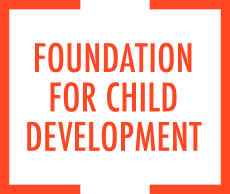https://www.fcd-us.org/declining-fortunes-of-children-in-middle-class-families/
Middle-Class Children Falling Further Behind
Declining Prospects for Middle Class Kids Will Be Worsened by Budget Cuts
NEW YORK, NY – America’s middle-class children have been steadily falling further behind their more privileged peers for the past quarter century – but the worst of the fallout has been held in check by essential policies and programs that could be unraveled, depending on key budget decisions, according to a new study released by the Foundation for Child Development. These findings arrive in advance of President Obama’s February 14 budget announcement -- and what is likely to be a charged debate in Congress that will determine the future of these programs against other priorities.
“This report shows that we have a sleeping giant on our hands. For the past eight years, even before the ‘Great Recession’ hit, middle-class families have increasingly counted on essential public health care and early education supports to safeguard their children’s well-being,” said the report’s author, Donald Hernandez, Professor, Department of Sociology, Hunter College and the Graduate Center, City University of New York who specializes in youth policy and demography. “But these programs can’t be taken for granted anymore. If they face the budget ax, middle-class and low-income families across the country will see the foundation for their children’s prospects dramatically undermined.”
Declining Fortunes of Children in Middle-Class Families is the first analysis to track over a 24-year period the relationship between family income levels and positive and negative outcomes for children across key indicators of their health, education, and social relationships. The report is based on national statistics used in the Foundation’s annual Child Well-Being Index (CWI), the most comprehensive measure of how well America’s children are faring.
Key findings from the report include:
- Children in middle-class families were losing economic ground long before the Great Recession. Between 2000-2008, children in middle-class families experienced a drop in real family income of more than $4,000, compared to children in more privileged families who saw their family income dip by just $139 in the same time period.
- The income gap between families is widening. The gap in real family income separating the typical child in a middle-class family from the typical child in a high-income family expanded by more than 50 percent, or $33,300, from $59,800 in 1985 to $93,100 by 2008.
- Public education and health programs have stepped in to provide essential services for middle-class children that their parents cannot afford or take for granted. Public policies are increasingly important in providing an essential foundation for children’s future, particularly access to health insurance and PreKindergarten, two indicators that researchers have identified as critical for children’s long-term well-being and success.
- The precarious situation of the middle-class is also reflected in the rising numbers of children in middle-class families living with one parent or in families without a securely employed parent. The proportion of children in middle-class families living with one parent increased from 14 to 23 percent during the past quarter century. Children with a securely employed parent increased between 1993 and 2000, but three-fourths of these gains were wiped out by 2008.
“This study is a stark reminder that policies we set today have very wide and real ramifications in the lives of children – not only children from low-income families but children squarely in the middle class,” said Ruby Takanishi, former President of Foundation of Child Development. “The budget decisions we make in the coming months will have consequences that could last a lifetime. They will determine whether our children will inherit a nation that is more unequal and ultimately less economically competitive than the nation their parents and grandparents experienced.”
